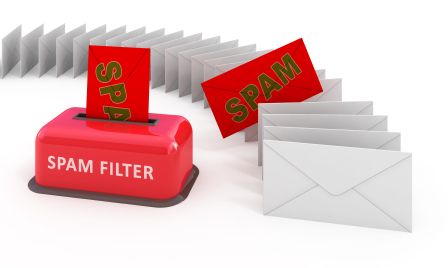Spammy Scams: Spaniards Win Education, Americans Win iPhones, Brits Win Life-Altering Lotteries

What possible lure can be so appealing that it makes users forget all the advice they’ve been receiving from the security community for years and innocently open spam messages exposing themselves to all kinds of on-line threats? As it turns out, different scams target different nationalities lately.
While Brits seem happy with enough money for a downtown London apartment down payment, Spaniards seem to be wooed by the promise of further education amid rampant unemployment and Americans still covet a free iPhone. Germans, on the other hand, find themselves tempted by a life altering sum of cash.
After scanning through spam and scams of recent months, here are some we found targeting specific nationalities:
In the UK, scammers announce computer users that they have just won £100,000.00. GBP (One hundred Thousand Great British Pounds Sterling’s) from the Coca Cola 125th Anniversary Award for which Brits have to send a scan copy of an identification document.
Barclays, PayPal, and HSBC customers may get tricked with an old-school scam, namely “Check your account”.
Brits were also bombarded these past months with apparently official notifications telling them of some “irregular” activity performed on their Internet banking account. Then there’s a customized British Microsoft and Facebook award that hints at a free Microsoft Windows 8 license to make the user open the attachment.
Germans were lured by the illusion of having just won a life-changing amount of money in the lottery. In order to pick up the EU915.810 prize, they are asked to open a PDF file and fill in their identification data. Other scams imitate online booking notifications from hotel.de and ask Germans to open an archived malicious attachment to confirm an alleged hotel reservation to a luxurious spa center in Germany. PayPal notifications written in German invite users to type in identification information and send it to scammers.
Spaniards were told they have won the famous Christmas lottery that causes a major buzz in the country every Holiday season.
Spanish-speaking crooks anticipated the fast approaching Holiday season and sent parents appealing Christmas Camp suggestions for their children over 3. For more details, they were asked to call a premium-rate number included in the e-mail.
Banco Santander customers were targeted with the “renew your log-in information” scams while post-graduate students were tempted with qualification classes allegedly especially adapted to fit the work environment reality of today.
Poste Italiane clients continue to be hit up for critical data, while people in US are lured with vacations in Costa Rica and California, comfortable office furniture, luxury cars, and free Windows 8 licenses that prove to be stolen or altogether bogus keys or IPhone5 handsets at hard-to-say-no costs. There’s also an old Brooklyn vintage lantern with new led technology out there that shines up to 100,000 hours.
In New Zealand, users may fall for the “ATM MASTER CARD delivery” trick. Users receive a form which they are asked to fill in with identification data and choose the courier company they’d like to handle the delivery of their card. In return for a small fee, they are granted the card delivery in a 48-hour time interval.
With such targeted and diverse lures, it’s hard to imagine this kind of threat will fade away any time soon. There will always be someone who believes luck comes to those who wish for it, who inattentively type in their critical data into a phishing form, who innocently make money deposits for those in need.
tags
Author
A blend of product manager and journalist with a pinch of e-threat analysis, Loredana writes mostly about malware and spam. She believes that most errors happen between the keyboard and the chair.
View all postsRight now Top posts
How to Protect Your WhatsApp from Hackers and Scammers – 8 Key Settings and Best Practices
April 03, 2025
Outpacing Cyberthreats: Bitdefender Together with Scuderia Ferrari HP in 2025
March 12, 2025
Streamjacking Scams On YouTube Leverage CS2 Pro Player Championships to Defraud Gamers
February 20, 2025
How to Identify and Protect Yourself from Gaming Laptop Scams
February 11, 2025
FOLLOW US ON SOCIAL MEDIA
You might also like
Bookmarks

















